
The English translation of Gitanjali, “Song Offerings”, encases only 103, amongst which one poem is a combined translation of two other poems. Fifty-three of the poems are from Gitanjali, while the other 50 are from other publications like Geetmalya, Naibidya, Kheya, Sishu, Chaitali, Kalpana, Smaran, and Utswarga. The facts about Song Offerings that had attracted the western world the most were perhaps the lack of verbosity and the stimulation of such deep-rooted thought and feeling of life with the use of such few words, says Hayat, as part of the Special Feature. A Different Truths exclusive.
In the year 1913 Rabindranath Tagore was awarded the Nobel Prize with the publication of the English translation of the Gitanjali. The contrast between the Gitanjali in Bengali and the translated English version is impassable. Gitanjali in Bengali encloses 157 poems, while the English translation, better known as “Song Offerings”, encases only 103, amongst which one poem is a combined translation of two other poems. Fifty-three of the poems are from Gitanjali, while the other 50 are from other publications like Geetmalya, Naibidya, Kheya, Sishu, Chaitali, Kalpana, Smaran, and Utswarga. Gitanjali is essentially a compilation of poems in prose form. The greater part of Song Offerings is chiefly a figurative translation of his prose poems. The intrinsic rhyming nature and the ingrained meanings of the prose, confirm Tagore’s absolute ownership of them.
A précised English translation to this prose is not only arduous, but to some extent impossible as well, yet the language and the imagery portrayed did not fail to charm the world. The facts about Song Offerings that had attracted the western world the most were perhaps the lack of verbosity and the stimulation of such deep-rooted thought and feeling of life with the use of such few words. The western world was rather proud of discovering such a powerful literary talent. The reaction of the people of India, especially that of Bengal (the then East and West Bengal) had hurt the sentiments of the great poet. He was distressed by the fact that he found recognition in his own country only after the western world recognised him. There were also the critics, who belittled his achievements, disregarding the fact that he was one of the first Asians to have received such an honour.
In the year 1912, Rabindranath Tagore had planned to visit Britain for the third time with his son Rathindranath, but his ill-health had forced him to take complete rest. It was during this time that he only indulged himself in some light work and the English translation of Gitanjali was born. He travelled to Britain in the June of 1912 and translated a few more poems during the journey. He was not very well known in the west then. He was acquainted with artist Rothenstein, who had done a portrait of Tagore while he had visited Santiniketan. On reaching Britain, he had contacted him. Rothenstein had then typed the translations of Gitanjali and distributed it among few well-known personalities like William Butler Yeats, Stopford Brook, and Andrew Bradley. He had then arranged for a reading of these translated poems, where a number of eminent personalities, like Sinclair, Earnest Rice, Charles Travalion, and Charles Frier Andrews were present along with Rothenstein and Yeats.
In the various dinners and social gatherings that followed, Tagore was introduced to a number of distinguished literary personalities like George Bernard Shaw, H. G. Wells, John Galsworthy, Robert Bridges, among others. His poems had affected everyone present. This was followed by a number of other dinners and public events to promote the works of Tagore. Song Offerings was first published in London by India Society where 750 copies were printed and 250 were for sale. This was followed by Rabindranath Tagore receiving the Nobel Prize on 13th November 1913.
Song Offerings does not follow a chronological order and thus can be considered as individual poems as well. The poems here evoke a deep devotional feeling when we read or listen to them, yet they do not burden one with religious theory and hence are welcome to one and all. It is perhaps this and the deeply rooted philosophy of the prose and poems that garnered such interest in the west. It is rather amazing to imagine the probable reaction of the western world had they been fortunate enough to be able to listen to the songs of Gitanjali, the way we do and get lost in the spiritual worlds that they weave for every individual. If we go by comparison, between the language versions of the songs then I feel that the poems are somewhat lost in translation in Song Offerings.
In a letter to Ajit Chakraborty, Tagore had mentioned that he did not do a literal translation of the poems but he lost himself in the tides of emotions, trusting them to take him home. Thus, these translations are figurative and metaphorical in nature. It is perhaps for the same reason that the prose and poems in Song Offerings hold such deep significance to both critics and readers alike. The poems in Bengali and their English counterparts have been in the front and centre of numerous debates both in India and abroad. Tagore was, however, strict about bringing any metaphorical or figurative changes to his poems in the process of translation. He conveyed the same to Robert Bridges, who desired to translate the poems. In a letter to Robert Bridges, Tagore had written:
“I think there is a stage in all writings where they have a finality in spite of their shortcomings. Authors have their limitations and we have to put up with them if they give us something positively good. If we begin to think of an improvement, there is no end to it and differences of opinion are sure to arise. Please do not think that I have the least conceit about my English. Being not born to it, I have no standard of judgement in my mind about language at least, I cannot consciously use it. Therefore, I am all the more helpless in deciding whether certain alterations add to the value of a poem with which my readers, minds have already become familiar. I know, habit gives a poem its true living character, making it seem inevitable like flower or fruit. Flaws are there but Life makes up for all its flaws.”
It is rather sad to think that a section of Indians believed that Tagore received his Nobel Prize due to the translations done by Robert Bridges. Rothenstein had once mentioned:
“I knew that it was said in India that the success of Gitanjali was largely owing to Yeats’ rewriting of Tagore’s in English. That is false and can be easily proved. The original manuscript of Gitanjali in English and in Bengali is in my possession.”
The then Chairman of the Nobel Committee, at the Nobel presentation speech had not only given priority to Song Offerings but had also presented some of his other translated work like – The Gardener Lyrics of Love and Life(1913), Glimpses of Bengal Life(1913), The Crescent Moon(1913), Sadhana : The Realisation of Life(1913). These were a compilation of stories, poems, childhood memories and a few speeches he had delivered. The Chairman had ended his speech with the reading of the 82nd poem from Gitanjali.
Tagore’s receiving the Nobel Prize holds a special significance for us. That day it was not just the Indian culture that was upheld at the world stage but the intricate cultures of Bengal and Bengalis that saw the light of the world. In the second part of the preface to Song Offerings, Yeats had written that the poems had opened in front of him such world, such a heaven which play on the chords of his heartstrings and transcends him to such a spiritual world, of which he had only dreamed. He felt that the poems are the harvest of a different world where literature and trust entangle in a tradition expressed through the simplicity of the grass and the flowers that grow galore. He had further said that, “If the civilisation of Bengal remains unbroken, if that common mind which – as one divine – runs through all, is not, as with us, broken into a dozen minds that know nothing of each other, something even of what is most subtle in these verses will have come in a few generations, to the beggar on the roads.” We have not yet reached such a stage but one can always be hopeful that through education one day Bengalis can achieve such a stand.
In the preface to the French translation of Gitanjali, Andréa Gide had pointed out that the precise nature of the poems depicting such enormous life values impresses him. Such condensed verses coming from the land of the lengthy epics of Ramayana and Mahabharata stir his heart with happiness. He had further said that he is perhaps not capable in unearthing the significance of the life that is held and portrayed by Tagore through this works and even if he is, he would rather not do so. Tagore has beautifully portrayed the spirituality of the Upanishads without tampering with their meaning to the slightest and the emotions have been depicted with acute sincerity and exactness.
Even severe critics like Ezra Pound were moved by the artistic creativity of the rhyming verses. According to him, such works of art must be appreciated in the peacefulness of solitude, in quietness, and aloud. These translations have been done by an expert with finer artistic caliber than others.
Since the beginning of the previous century, Song Offerings has enlightened the western world and which in turn has motivated them to study not only Rabindranath Tagore but also the culture of Bengal. The day he had received the award, he had opened the doors of the world for our culture to grow and be recognised worldwide. Today, he is a part of our souls, and we hear his footsteps in every aspect of our livelihood.
Photos from the Internet
#EzraPound #SongOffering #Gitanjali #GeorgeBernardShaw #HGWells #JohnGalsworthy #RobertBridges #EnglishTranslation #NobelPrize #TributeToTagore #DifferentTruths

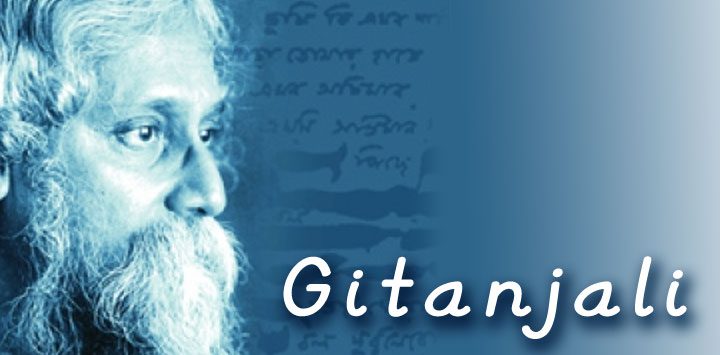
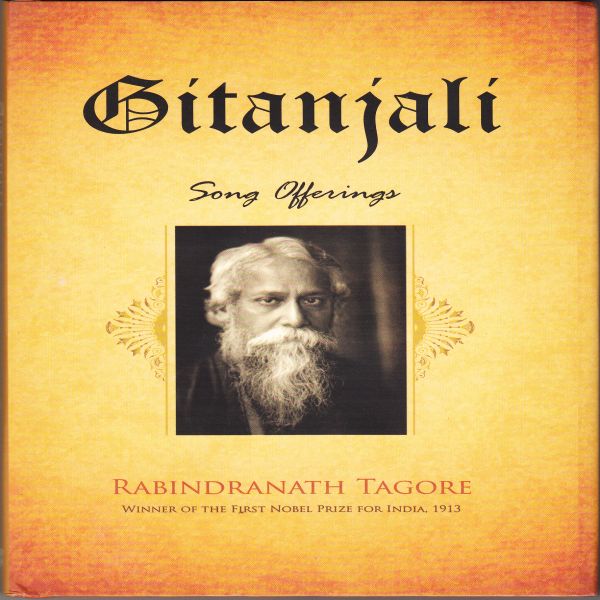
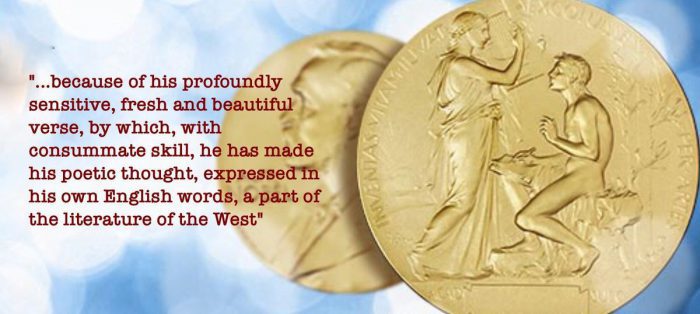
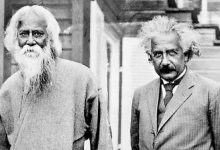
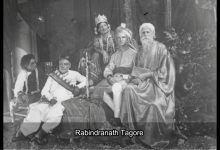

 By
By

 By
By
 By
By